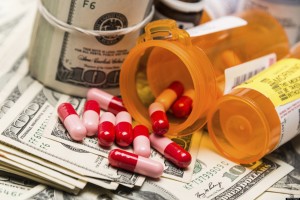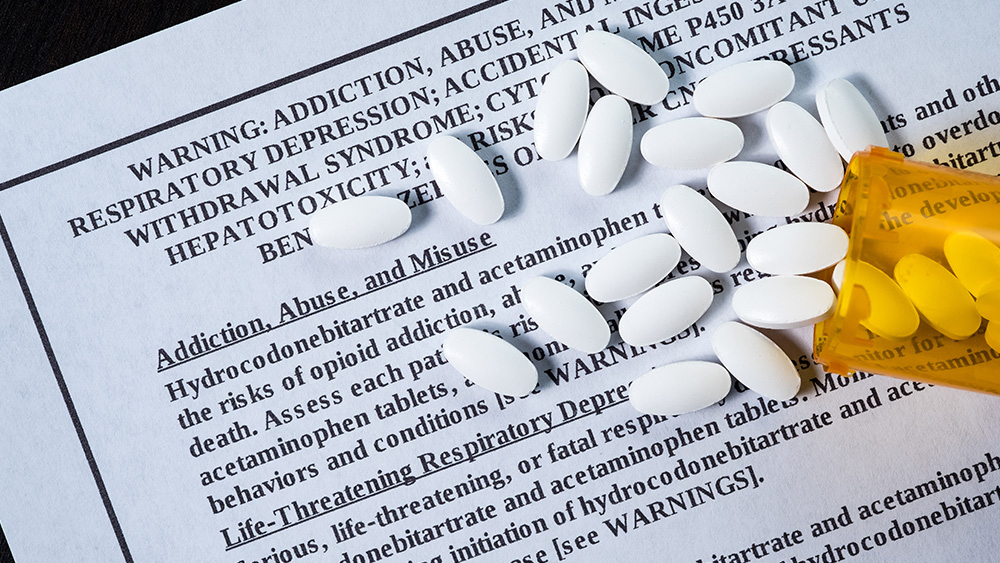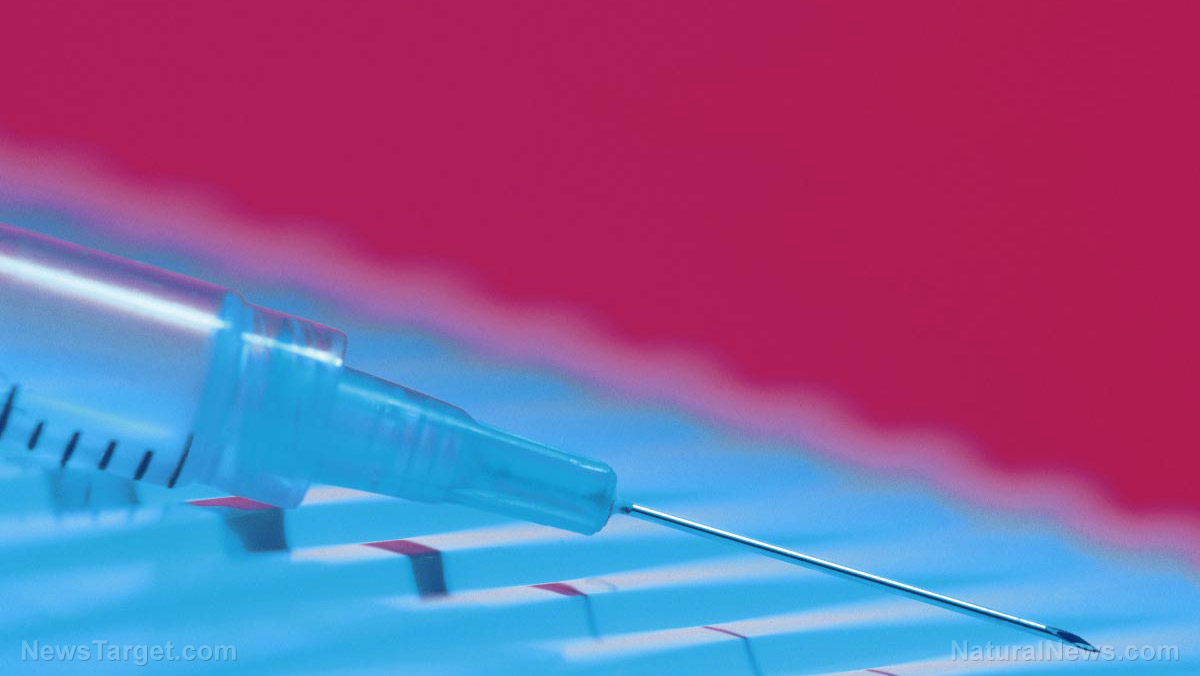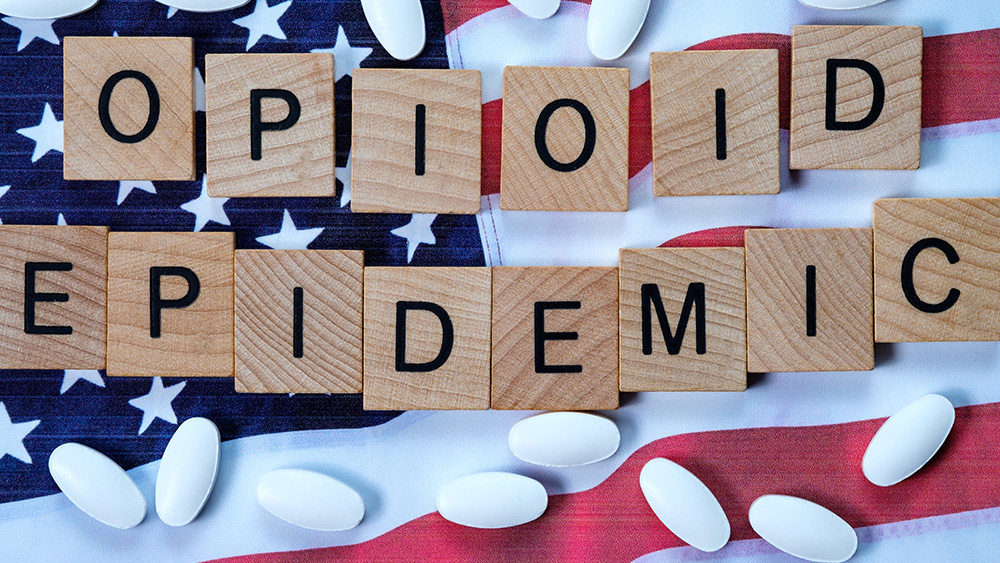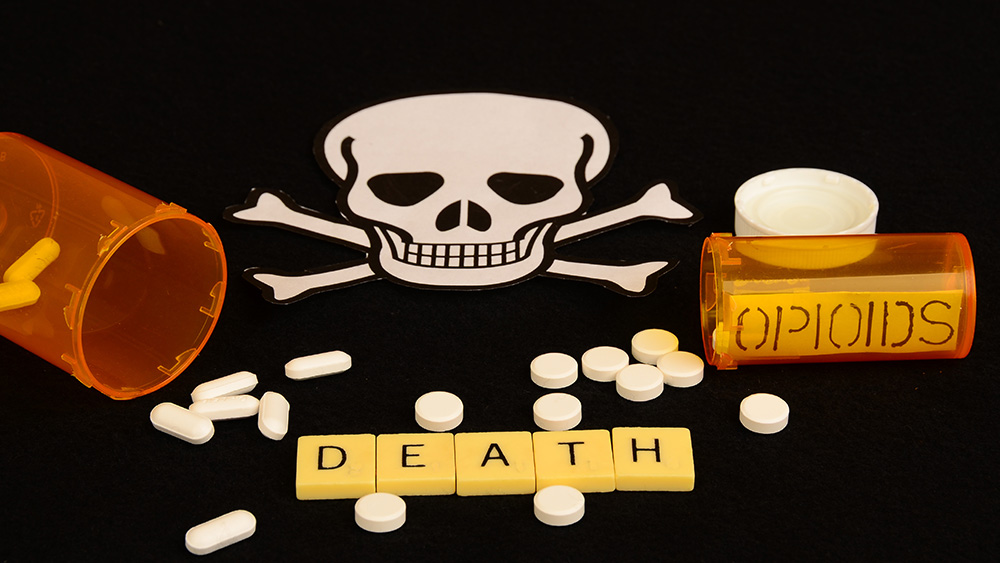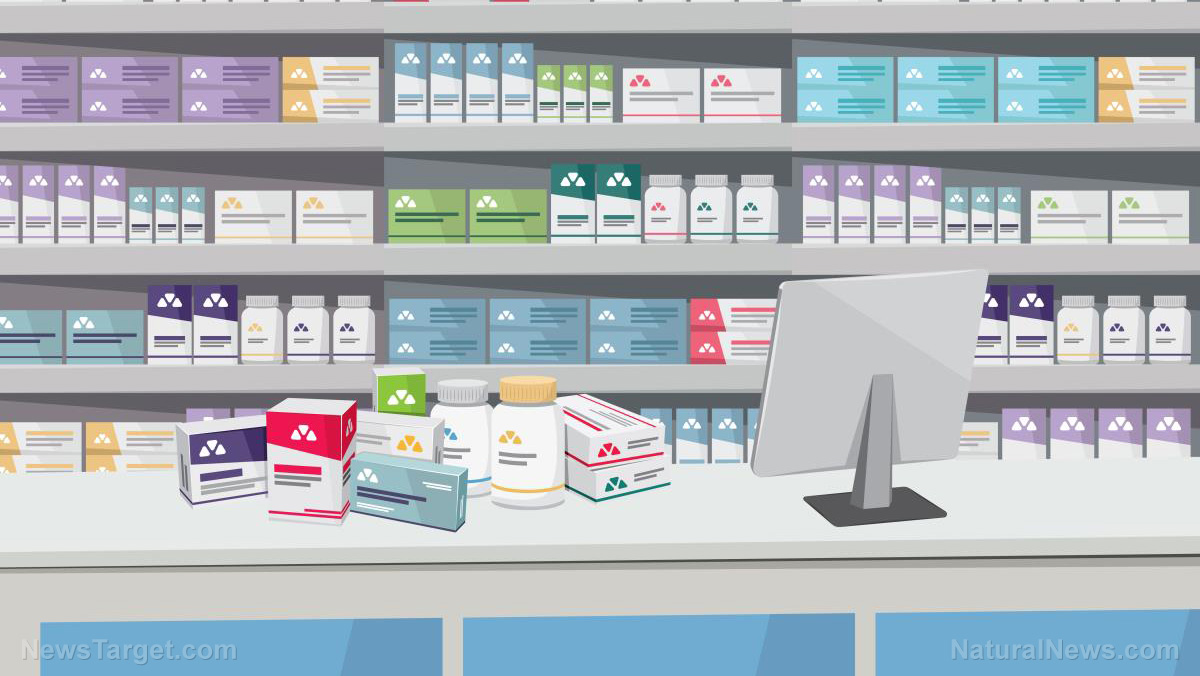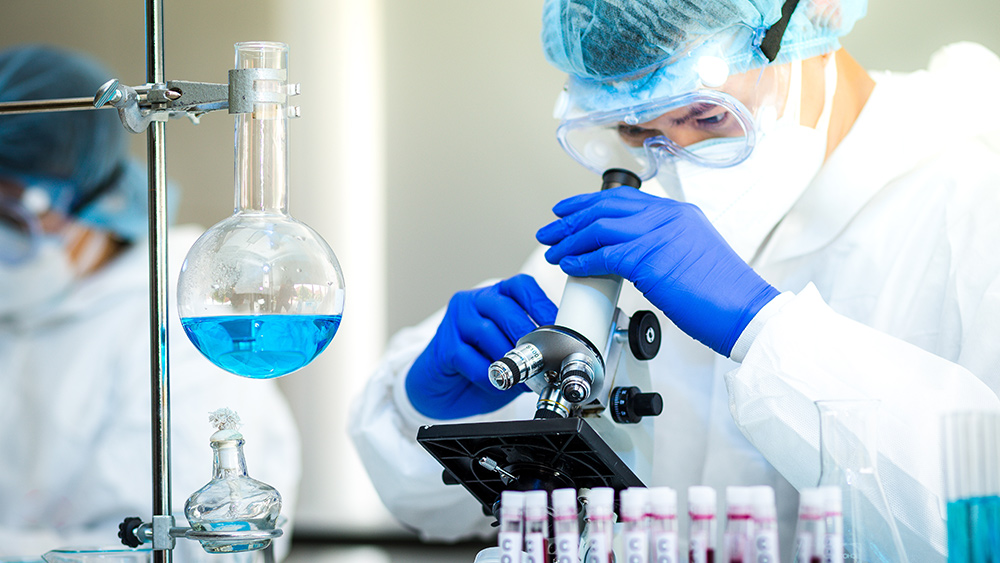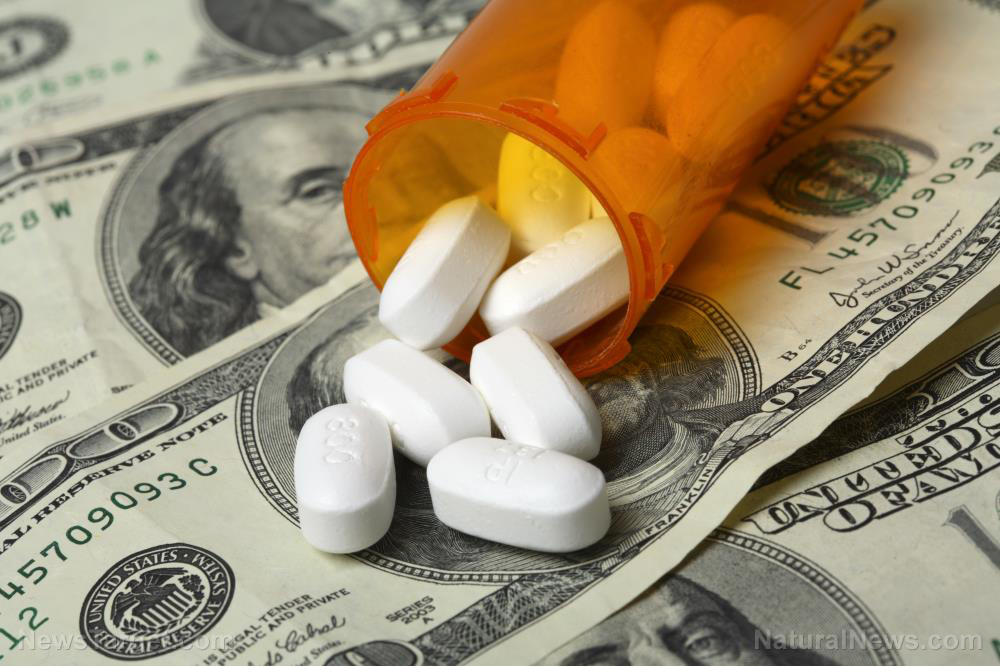Top 5 reasons never to take a proton pump inhibitor
12/29/2021 / By News Editors
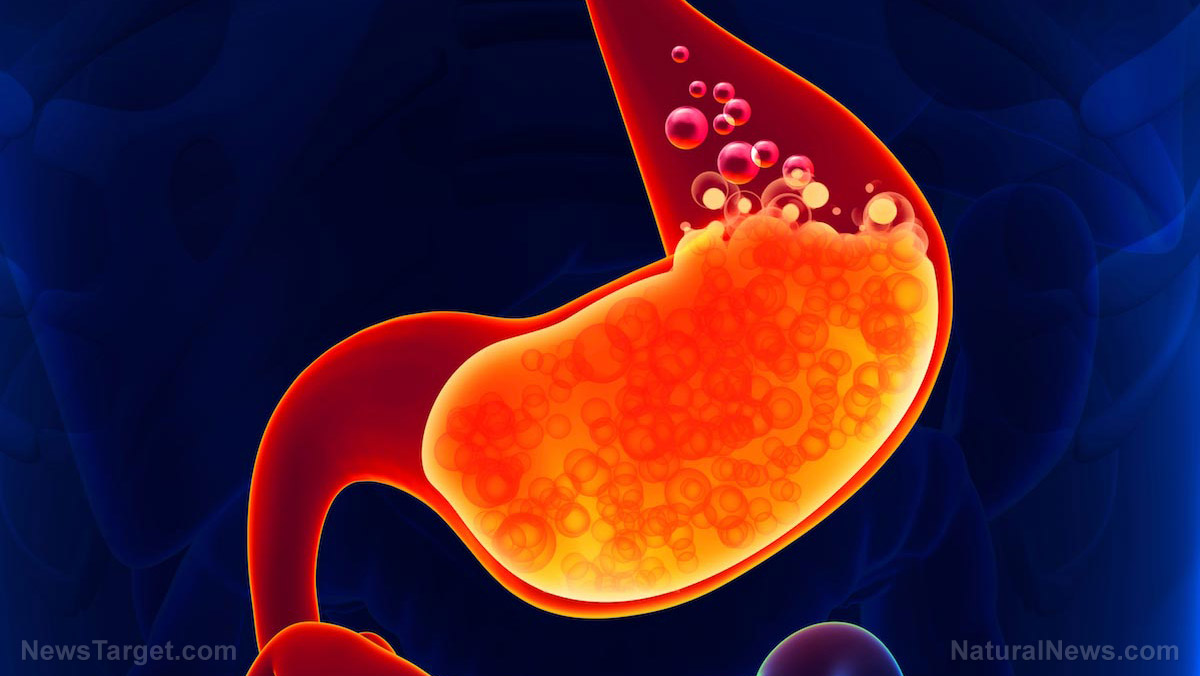
Millions of doses of “acid blocking” proton pump inhibitor drugs are doled out every year, yet most doctors and their patients are completely oblivious to their unintended, adverse effects, which include increased risk for premature death.
(Article republished from GreenMedInfo.com)
Proton pump inhibitors are a type of drug commonly known as acid-blockers, whose primary purpose is to reduce the amount of gastric acid secreted in the stomach wall. Available with or without a prescription, acid-blockers are used to treat common disorders such as indigestion, heartburn, acid reflux, and various ulcers. These types of digestive disturbances are so common, proton pump inhibitors, or PPIs, were prescribed at nearly 270 million hospital trips made by adults via ambulance from 2006 to 2010. The standard American diet of sugar-laden, highly-acidic processed foods, and the stress-filled lifestyle that accompanies it, make it easy to swallow the fact that PPIs are among the most highly prescribed drugs on the planet.
Economically, the boost these drugs represent to pharmaceutical companies cannot be overstated. With cumulative sales of more than $10 billion dollars annually, drugs like Nexium, Prilosec, Prevacid, and others, represent a significant chunk of Big Pharma’s profits. Despite clinical research that shows an act as simple as drinking more water reduces stomach acid more than these drugs, and does so safely with no negative side effects, Big Pharma’s relationship with the corner doctor’s office too often prevents these basic self-help practices from being disseminated.
PPIs work by raising stomach pH above normal range to inhibit secretion of pepsin, a digestive enzyme that can be irritating to stomach lining. While this action may provide temporary feelings of relief, it effectively blocks secretion of normal, healthy enzymes, impairing the body’s digestive function over the long-term. Lack of adequate stomach secretions can also expose us to harmful molds, viruses, and bacteria that may be present in our food.
PPIs have developed a list of known side effects that are reported to occur within days or weeks of onset of use. The most commonly reported short-term side effects of taking PPIs are:
- Digestive disturbances, such as nausea, vomiting, diarrhea, constipation, abdominal pain, and gas
- Headaches
- Fever or cold symptoms, such as stuffy nose, sneezing, and sore throat
- Skin rashes
- Cognitive impairment
- Infection
Even more disturbing are recent announcements from the scientific community on the long-term effects of PPIs. Considered safe and well-tolerated, many of these medications are available in drugstores without a prescription. But recent research demonstrating serious side effects have some calling for an end to unfettered access to these medications. The findings are so damning, one researcher proclaimed they had uncovered “a smoking gun.”
Safe Antacid or Smoking Gun?
The majority of people who take acid blockers are doing so because of dietary and lifestyle choices that create an unfavorable condition in the digestive tract. Poor quality food, consumed in rushed conditions, chased down with coffee or soda – what could go wrong? Just pop a purple pill to chase away the inevitable heartburn that follows. When pills are so readily available that help us divorce consequence from causation, these dietary indiscretions can become commonplace, even normalized. Side effects are rushed through in commercials, with the emphasis on “enjoy the foods you love!” presumably, with no downside. But the systemic effects of proton pump inhibitors are finally being recognized, and the action of these drugs is not merely isolated to the stomach. They affect the acid production of every cell in the human body.
Research conducted at Stanford University and Houston Methodist Hospital in Texas, uncovered shocking findings in 2016, through research supported by the American Heart Association. What co-author John Cooke, MD, PhD, chair of Cardiovascular Disease Research at Houston Methodist Hospital calls “the smoking gun,” is the fact that PPIs effectively inhibit acid production throughout the body, disrupting normal, healthy metabolic processes of cells. The acid bath that PPIs disrupt in the stomach carries important digestive enzymes. When this enzymatic activity is inhibited in the rest of the body (because the effects of PPIs are not limited to the stomach) cells become unable to break down waste materials. Cooke likens this process to “a garbage disposal that requires acid to work.” Cells rapidly become burdened by these waste products, and the damaging effects of aging are accelerated. This type of cellular damage leaves patients, particularly those taking PPIs for a year or more, susceptible to a host of diseases, and even premature death.
It is of critical importance to note that the intended, reasonable use of these drugs has been hugely overshot. Approved by the FDA for short-term use only, these drugs are now taken daily by millions of people, sometimes for decades. Doctors have fallen asleep at the wheel when it comes to safeguarding patients from the harmful effects of medication abuse, and are now guilty of over-prescribing. The potential complications from PPIs are vast, as each individual responds to these and all drugs differently. It is up to each person to determine his or her acceptable level of risk, and a proper determination of risk cannot be made without first knowing the facts. Based on the latest science, the following risk factors represent our top five reasons why you should never take a proton pump inhibitor.
1. Increased risk for kidney disease
The evidence that PPIs are damaging to the spleen and kidneys first appeared in case reports of acute interstitial nephritis, inflammation of the tissues between renal tubules that affect how our kidneys regulate and uptake water. This condition, which can lead to kidney failure, was observed to occur suddenly and in significantly higher rates among users of PPIs. Cessation of use of PPIs was also observed to initiate a reversal of symptoms in many cases. Once the alarm was sounded, large observational studies were conducted that found correlations of PPI use with increased incidence of acute kidney injury, chronic kidney disease, and end-stage renal disease. These risks increase when users consume more than one dose daily of these medications.
While researchers are quick to point out that correlation is not causation, the data trend was alarming enough to prompt both doctors and researchers to acknowledge, “PPIs may not be as innocuous as initially thought.” A meta-analysis of independent studies found a “positive and significant association” in thirteen of seventeen studies, between PPIs and compromised kidney function, prompting researchers to conclude that “timely cessation of PPIs might reduce kidney disease.” This is especially true in cases where use is prescribed for non-serious medical issues, which is the case with the majority of PPI users.
2. Increased risk for heart disease
There is now a significant body of evidence demonstrating the adverse cardiovascular effects of PPIs. A June 2016 article published in the American Journal of Cardiovascular Drugs reviewed available information on PPIs in relation to cardiovascular risks, as well as the mechanisms by which this harm occurs. The study confirms the finding that proton pump inhibitor effects are not isolated to stomach cells. In particular, PPIs were observed to reduce the acidification of lysosomes, cells responsible for the breakdown of proteins, fats, carbohydrates, and nucleic acids. PPIs alter basic cellular functions, including those related to blood clotting ability, thereby increasing a risk of major adverse cardiac events.
A study conducted in Denmark involving more than 56,000 participants who had been hospitalized for a myocardial infarction (MI), “reported a 30% increase in incidence of cardiovascular death, recurrent MI, or stroke within the first month after discharge for those patients that were taking PPIs.” Another study on nearly 24,000 participants confirms this finding, reporting an increased risk of recurrent MI in those individuals taking PPIs. A meta-analysis of studies involving more than one-hundred thousand patients in total, examined the link between cardiovascular risks for patients taking PPIs in conjunction with the blood-thinning drug, clopidogrel. Analysis revealed that while this drug combination is contraindicated due to PPIs diminishing the effectiveness of the blood-thinner, “a significant cardiovascular risk” was attributable to taking PPIs alone.
3. Digestive disorders
Most people take PPIs because of digestive system upset, so it may seem oxymoronic to include this condition in the list of reasons not to take PPIs. The most common ailment cited when writing prescriptions for PPIs is gastroesophageal reflux disease, or GERD. This condition, which expresses as excess acid in the stomach, is not the only reason for prescribing a PPI. A PPI prescription is written for 50% of all digestive diseases! PPI overuse has been documented in numerous studies, so whether the cause of the digestive complaint is excess acid or other, the “fix” you are given in many cases is a proton pump inhibitor. This creates conditions under which proper diagnosis of the digestive complaint cannot be made, and a domino-effect of symptoms that may or may not be related to the original problem can cloud the picture.
The gut is believed to be our “second brain” due to the proliferation of biological signals that originate in the intestinal tract. The acid balance in the stomach, directly altered by PPIs, is now understood to play a vital role in the health of the all-important microbiome. PPIs alter the delicate pH balance in the gut, compromising microbial communities and corrupting these biological signals. Studies have linked damages to the health and diversity of beneficial gut microbes, directly to PPI use. A compromised microbiome can drive digestive complaints, and commonly reported PPI side-effects such as diarrhea and vomiting. Having an impaired microbiome for months or years can lead to serious diseases such as inflammatory bowel disease, obesity, diabetes, liver disease, cancers, and more.
4. Diminished brain function
One of the most startling correlations between proton pump inhibitors and chronic health problems, are the findings related to cognitive disorders. While it’s not such a novel idea that food affects our mood, there isn’t yet a wide consensus on food’s impact on brain health. A study released in Dec 2015 was prompted by research showing that PPIs increase the brain burden of amyloid-beta, an amino acid that is the main component of the amyloid plaques found in the brains of Alzheimer patients. PPIs are also known to create vitamin B12 deficiency, a second factor in Alzheimer’s disease. Researchers amassed sixty volunteers, divided into five test groups, and one control group. Each of the five test groups were given a different PPI: omeprazole, lansoprazole, pantoprazole, rabeprazole, and esomeprazole. All six groups participated in computerized, neuropsychological tests at the beginning of the study, and again, seven days after taking the specific PPIs maximum daily dose. While researchers admit that a larger study is desirable, the evidence was clear:
We found statistically and clinically significant impairment in visual memory, attention, executive function, and working and planning function. All PPIs had a similar negative impact on cognition.
Of the PPIs studied, omeprazole had the most significant impact (significant results on 7 of 7 cognition tests), and esomeprazole showed comparatively less (significant results on 3 of 7 tests).
Fueled by this kind of result, a larger study was conducted in 2016 that analyzed more than 73,000 participants, aged 75 years or older, and free of dementia. The patients receiving regular PPI medication had a significantly increased risk of incident dementia compared with the patients not receiving PPI medication. Researchers made the shockingly forthright conclusion that “The avoidance of PPI medication may prevent the development of dementia.”
5. Increased risk of death
It’s clear from the evidence, as well as common sense, that PPIs have a systemic effect on the entire body, not just the small function they are prescribed to adjust. PPIs launch an attack on basic cellular functioning, inhibiting healthy cell metabolism from taking place. When the body’s ability to convert the building blocks of life, namely proteins, carbohydrates, fats, and nucleic acids, into useable fuel is compromised, so is our immune system, and life begins shutting down. An older study that helped pioneer awareness of harm due to PPIs, is a 2013 study called Inhibition of lysosomal enzyme activities by proton pump inhibitors. Researchers observed that many of the adverse effects of PPIs are caused by systemically compromised immunity, a result of PPI inhibition of lysosomal enzymes. Lysosomes are essentially tiny membranes or sacs that carry enzymes essential to cellular metabolic functions. When PPIs inhibit this function, there is an increased incidence of tumors (tumorigenesis) and infectious diseases.
A 2016 study examined the association between PPI use and “risk of all-cause mortality” among U.S. veterans. In this study, nearly 350,000 veterans records were analysed, including new users of either PPIs, or the older antacid type, H2 blockers, in addition to control groups taking no medications. Health events were observed over approximately six years. Researchers were “startled” by the results. Increased risk of death was associated with PPIs across all controls, including a 25% greater risk of death compared to individuals taking H2 blockers. The risk of death was greater still when compared to those taking no antacid medications. In addition, the longer a person was on PPIs, the higher the risk of death. While researchers admit they don’t know how each person in the study met their end, it was noted that PPI use was most prominent in older, sicker individuals. Considering the array of biological processes that our proton pumps facilitate, shunting the body’s ability to carry out normal, healthy cellular functions is a very good way to end up biologically older, and sicker, indeed.
Other precautions when taking or considering a proton pump inhibitor are the potential for drug interactions or contraindications. Stomach acids are often instrumental in the absorption of swallowed medication, and for this reason, PPIs have the potential to negatively impact the effectiveness of any oral drug. Consult your doctor for advice on this and any matter related to medication. Above all, trust in your body’s ability to self-heal when given the right ingredients and opportunity. Dietary change can be the best antidote for digestive disturbances, and simple natural remedies deliver powerful support with no negative side effects.
Read more at: GreenMedInfo.com
Tagged Under: Big Pharma, disease, disorders, FDA, gut health, health, heart health, prescription medications, Proton pump inhibitors, side effects
RECENT NEWS & ARTICLES
PrescriptionWarning.com is a fact-based public education website published by Prescription Warning Features, LLC.
All content copyright © 2018 by Prescription Warning Features, LLC.
Contact Us with Tips or Corrections
All trademarks, registered trademarks and servicemarks mentioned on this site are the property of their respective owners.

